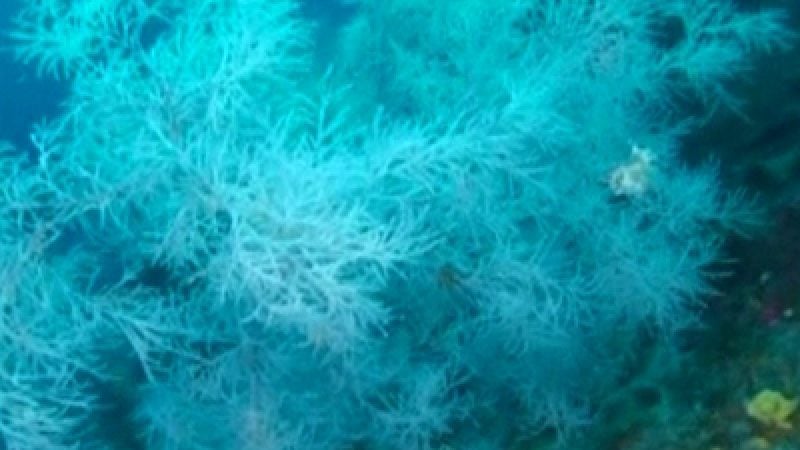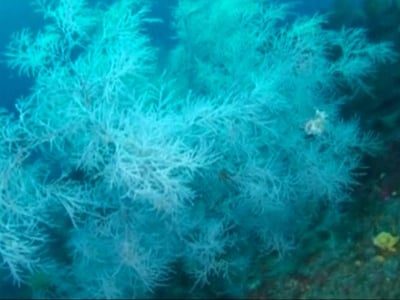
Italy: World’s Largest Black Coral Forest Discovered

It’s big, black, and rare – Researchers have discovered the largest forest of black coral in the world off Italy’s Calabria coast.
Using a remote controlled robot submarine, investigators were able to film the valuable coral. The forest covers 2 soccer fields and is submerged between 50 and 100 meters near the town of Scilla, overlooking the Strait of Messina.
[Simone Canese, Chief Reseracher]:
„We found an extremely rare species of black coral, ‚Antipates dicotoma‘, that had never been observed alive in its environment. There were only 5 fragments of it kept in museums. Recently, with the increase of underwater exploration, more of them may be discovered but we have provided the first images of them, alive, in their environment.“
An investment in underwater robotic equipment by the southern Calabrian region is making it possible to catalogue species at much lower depths than before, many of which are new discoveries.
[Simone Canese, Chief Reseracher]:
„Another very rare species of black coral that we found, which I think was also never observed at sea in the Mediterranean before, is the Parantipates Larix. It is a black coral shaped a bit like a tree, like a larch tree. We found some colonies with corals as tall as one and a half meters, 1.60 meters. Very beautiful.“
The Convention on International Trade in Endangered Species (CITES) lists black coral as an endangered species.
The coral’s living tissue is brightly colored, but it takes its name from the distinctive black or dark brown color of its skeleton, which is highly prized for its use in jewelry.
[Silvestro Greco, Calabrian Environmental Agency]:
„The coral we found has a great value. First because of their rarity. Luckily for the coral and for us it is very difficult to work with black coral and this can discourage some people but certainly if somebody with no conscience knew exactly where they were I think there would be risks. That’s why we have not really disclosed where they are.“
Black coral is usually discovered in the tropics but has never before been found in the Mediterranean Sea.
 (NTDTV)
(NTDTV)


![[Live ab 11:25 Uhr] Scholz und Klingbeil sprechen auf SPD-Bundesparteitag](https://images-de.epochtimes.de/uploads/2025/01/Thumb-SPD-Bundesparteitag-v2-400x225.jpg)
























vielen Dank, dass Sie unseren Kommentar-Bereich nutzen.
Bitte verzichten Sie auf Unterstellungen, Schimpfworte, aggressive Formulierungen und Werbe-Links. Solche Kommentare werden wir nicht veröffentlichen. Dies umfasst ebenso abschweifende Kommentare, die keinen konkreten Bezug zum jeweiligen Artikel haben. Viele Kommentare waren bisher schon anregend und auf die Themen bezogen. Wir bitten Sie um eine Qualität, die den Artikeln entspricht, so haben wir alle etwas davon.
Da wir die Verantwortung für jeden veröffentlichten Kommentar tragen, geben wir Kommentare erst nach einer Prüfung frei. Je nach Aufkommen kann es deswegen zu zeitlichen Verzögerungen kommen.
Ihre Epoch Times - Redaktion